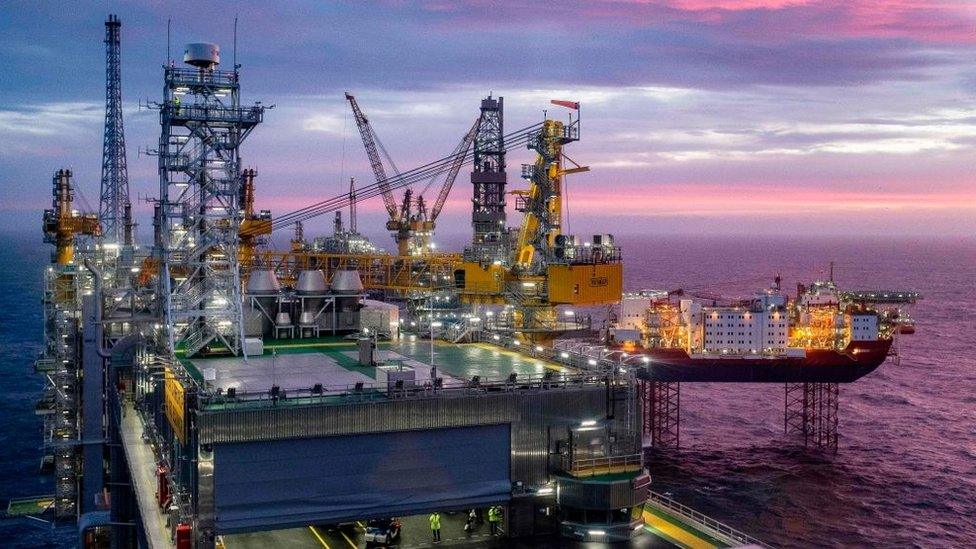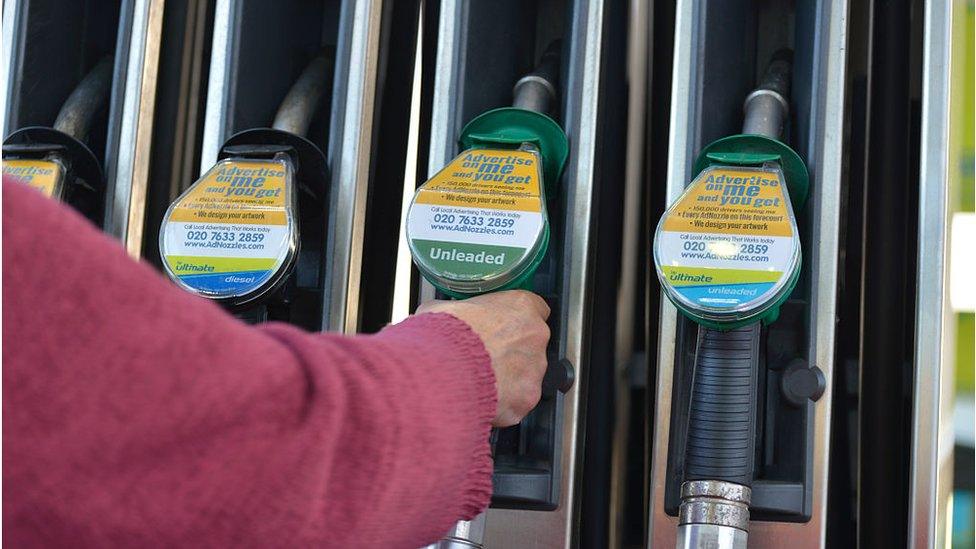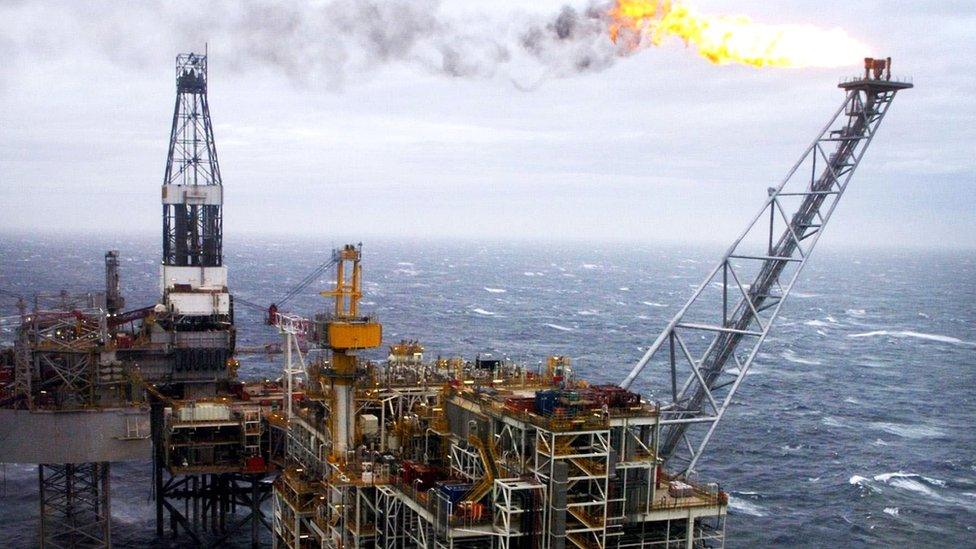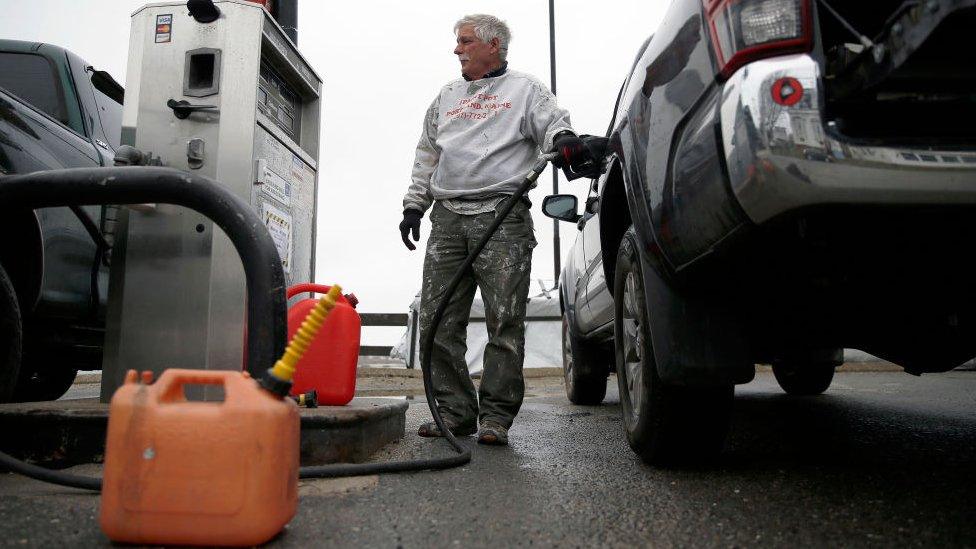Why oil is still most important price in the world
- Published

Whether you like it or not, oil is still the most important commodity in the world.
Its price can tell us not only what's really going on in the world economy right now, but has a great influence on what could happen in the future. Right now it is telling us that the world economy is in big trouble - a crisis not yet revealed in backward-looking economic growth figures.
There was worldwide shock last week at the freakish reading of a price of MINUS-$40 for a barrel of US oil. This was eye-catching but slightly misleading.
Oil is traded in contracts that expire on a given day of the month. Whoever is left holding the contract when the contract expires has to take delivery of the actual physical oil. Most people who trade oil have never, and will never, see a barrel of oil, let alone take delivery of one.
Oil contracts are used by airlines and industrial companies to manage or insure themselves against big swings in their fixed costs. A chronic lack of storage capacity in the US meant that the usual erratic swings on contract expiry day became extreme, as traders were willing to pay anything so they weren't left holding the barrel baby.
'Demand destruction'
However, the fundamental issues behind that technical, weird and historic price anomaly are very much real. Like any commodity, price is driven by supply and demand. Demand for oil is a very good proxy for global economic activity and right now all the talk is of "demand destruction" - planes grounded, cities emptied of cars and factories mothballed.
The situation was not helped by the fact that there was an oil price war going on between Saudi Arabia and Russia as Covid-19 was spreading across the globe.
Since then the big oil producers have cut production. But such is the collapse in demand, they can't cut fast enough and the price of the more global measure, Brent Crude, has continued to collapse, hitting a 20-year low this morning of $16. This time last year it was over $70.

Cheaper oil can mean lower petrol prices
Is cheap oil a good or bad thing? This is not a straightforward question.
Just as sky-high oil prices can trigger recessions, low oil prices can aid recoveries. A massive fall in the oil price is like a global tax cut on businesses big and small. If airlines can survive, and the travelling public return, then they could lock in low prices for their biggest single outlay - fuel.
Likewise hauliers, florists, supermarkets will all benefit from lower transport costs and more money in their customers' pockets, thanks to lower prices at the pump.
Petrol prices are already headed towards a £1 a litre and are expected to dip below that for the first time in nearly a decade. However, there is some evidence that petrol retailers are trying to increase profit margins to compensate for big falls in volume of sales.
Bad news for savers
It is possible that dirt cheap oil can help economies bounce back more quickly and help prevent a recession becoming a depression.
However, it's bad news for savers. Oil companies are some of the greatest cash spewing machines on the planet and a lot of that cash goes directly into our pension schemes. BP and Shell between them contribute nearly a fifth of all dividend income generated by UK companies.
Bad news for them can threaten the security of retirement income. They also pay a lot of tax into public coffers.
And then there are the environmental concerns. When oil is cheap, there is less economic incentive to look for alternatives.
That is why the global oil price is such a delicate balance of interests and why oil companies and governments like a stable price of somewhere between $40 and $60 a barrel. Not too cheap to threaten dividends, tax revenue and discourage greener alternatives, not too expensive to place a burden on the economy.
Right now that balance has been shattered, and it means very bad economic news is headed our way - if we didn't know that already.
- Published22 April 2020

- Published22 April 2020

